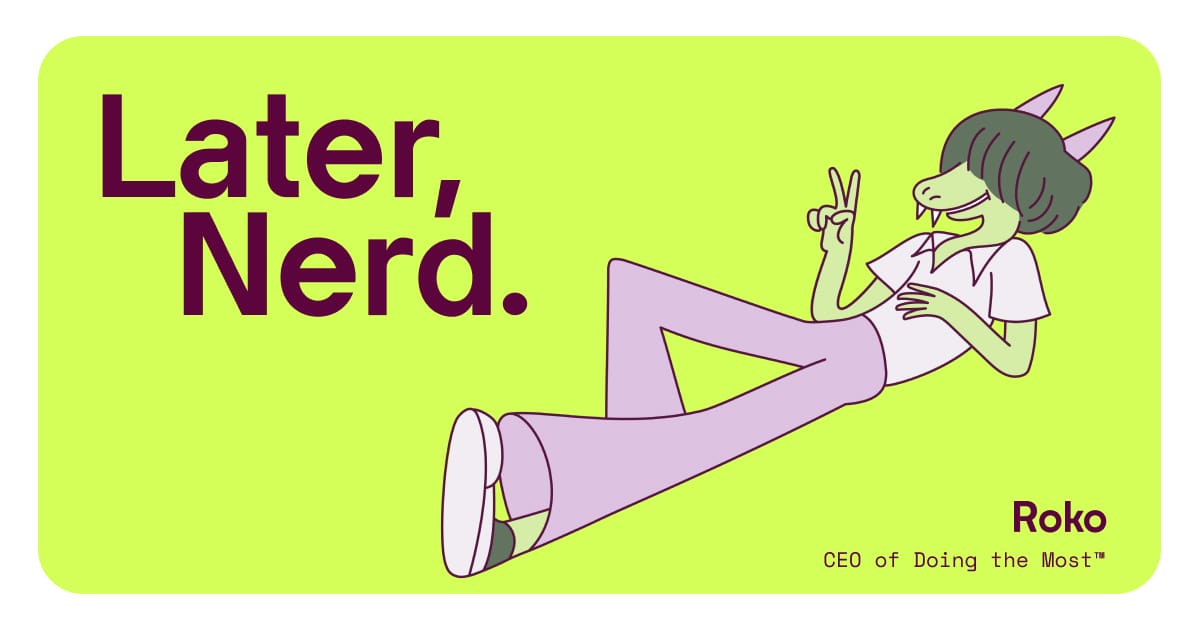- Roko's Basilisk
- Posts
- App Store Smackdown: Fortnite’s Comeback Hits Apple’s Wallet
App Store Smackdown: Fortnite’s Comeback Hits Apple’s Wallet
Epic Games rewrites the rules, AI rebels plot their next move, and Google’s bots want your attention.

Midweek Menu
🎮 Epic vs. Apple: The game-changer behind Fortnite’s victory
🧠 AI Mode, Engaged: Google reinvents search with a Gemini-powered assistant
🏦 White House bets big on AI robots to (maybe) save the economy
💼 Builder Snack: How to break the rules (without going broke)

AD + IMAGE
Lorem ipsum dolor sit amet. Id dicta repellendus ea omnis odit et modi similique ut odit adipisci et aperiam deserunt est nihil atque nam sapiente illum? Est accusantium error et dolor libero eos magni vero et odit voluptates et ullam consequatur ex exercitationem harum. Et reprehenderit voluptatem a quae quia.
*This is sponsored content

The Laboratory
How Fortnite took on Apple’s App Store ‘tax’—and won
After being in exile for around five years, Fortnite, the popular multiplayer shooter game, has finally made a comeback to Apple’s App Store. Distributed by Epic Games, a U.S.-based studio backed by China’s Tencent, Fortnite was banned by Apple for violating its policies and launching its own in-app payment system that allowed users to circumvent Apple’s 30% commission.
In this fast-evolving market, games come and go, but few can claim the distinction of returning while cracking open the business model that forms the backbone of the Apple ecosystem. The story of how Epic Games managed to challenge Apple’s tax regime is compelling—and has the potential to reshape the iPhone-maker’s iOS economics and serve as a case study for future developers taking on Big Tech.
Challenging the Apple ‘tax’ has its consequences
Trouble between Apple and Epic Games, the publisher of Fortnite, began in 2020. Epic was unhappy with Apple’s practice of charging developers a commission on every purchase made through apps on its App Store. In defiance of App Store rules, Epic introduced a direct payment option in the app for its in-game currency. Apple responded by removing Fortnite from its App Store.
This was just the beginning. After Fortnite was removed, Epic filed a lawsuit against Apple, accusing the company of anti-competitive practices. At the time, Epic’s CEO, Tim Sweeney, accused Apple of being a monopoly. He argued that since Apple claimed to support a level playing field for developers, it should allow both users and developers to process payments directly without Apple’s interference.
Epic also pointed out that apps offering real-world goods and services—like Uber, DoorDash, and StubHub—were not required to use Apple’s in-app purchase mechanism. The company argued that the same rule should apply to all developers.
The battle between Epic and Apple soon evolved into a broader confrontation between Big Tech and developers pushing for policy changes. Google also removed Fortnite from its Play Store, and Spotify—another critic of Apple’s 30% commission—joined Epic’s fight. Apple responded to the allegations by likening Epic's behavior to shoplifting, stating that if "developers can avoid the digital checkout, it is the same as if a customer leaves an Apple retail store without paying for a shoplifted product.”
The court battle ends in a partial win
After a dramatic trial—where the usually unflappable Tim Cook was thrown off balance by intense questioning from Judge Gonzalez Rogers, and phone lines were jammed due to public interest—a mixed verdict was delivered.
Apple was forced to allow developers to send users to alternative payment systems, marking a partial win for Fortnite creator Epic Games and other app makers. However, the judge did not compel Apple to let developers use their own in-app payment systems, one of Epic’s main demands.
The ruling also said Apple could no longer bar developers from including buttons or links in their apps that direct users to payment methods outside Apple’s system.
However, the court stopped short of requiring Apple to open iOS to third-party app stores. This prompted a new question: would legislators in the U.S. and EU be forced to consider bills requiring Apple to allow third-party in-app payment systems, similar to legislation passed in South Korea?
The stalemate didn’t last long. Both companies, unhappy with the verdict, appealed aspects of the ruling.
Apple filed an appeal, arguing that the ruling imposed undue restrictions on its operations and requested a stay on enforcement. Meanwhile, it began charging a commission on transactions that occurred outside the App Store. Apple also tried to get the injunction overturned but failed, and it went into effect in early 2024.
On or off the App Store, Apple collects its ‘tax’
Epic continued its campaign against the Apple ‘tax’ and, in 2025, scored another victory.
On April 30, 2025, U.S. District Judge Yvonne Gonzalez Rogers ruled that Apple violated a 2021 court injunction by continuing to block developers from directing users to alternative payment methods—and by charging a 27% commission on those transactions, even when they occurred outside the App Store.
The judge also reprimanded Apple, finding the company in willful contempt of the earlier order. The court noted that Apple executives, including CEO Tim Cook, had deliberately chosen to disregard the ruling. One executive was found to have “outright lied under oath,” and internal Apple documents showed that leadership knew their updated anti-steering policies might violate the injunction.
Will Apple contest challenges to its ‘tax’?
The short answer: yes. Apple has said it disagrees with the court’s ruling and plans to ask the U.S. Circuit Court of Appeals to review the order. However, the damage may already be done.
Following the ruling, Fortnite returned to the Apple App Store. Spotify, another ardent critic of the Apple ‘tax’, submitted an app update allowing U.S. users to view subscription pricing and purchase audiobooks directly—bypassing Apple's payment system.
Will Apple’s tactics be repealed globally?
Epic’s battle in the U.S. has profoundly influenced how Apple’s commission is viewed by both the public and lawmakers.
In June 2020, the European Commission opened formal proceedings into Apple's App Store rules. In 2024, it fined Apple over €1.8 billion for abusing its dominant position in the market for distributing music streaming apps to iOS users. The Commission found that Apple restricted app developers from informing users about cheaper subscription options available outside the app—a violation of the EU’s anti-steering rules.
Looking at how governments are responding, Apple may soon be forced to rethink its App Store commission model globally. In the EU, Apple has already been required to allow alternative app stores on iOS devices. This directly undermines Apple’s control over its tightly managed ecosystem and its ability to charge commissions on in-app purchases.
Where does Apple stand now?
Apple may attempt to minimize the damage done to its App Store revenue stream. But the proverbial genie is out of the bottle.
The battle between Epic and Apple not only allowed developers to challenge Apple’s ‘tax’—it also spotlighted how the company maintains control over its ecosystem. The legal fight shifted public opinion against Big Tech and empowered both users and developers to demand more transparency and choice.
This conflict may also have sounded the death knell for App Store policies that have long created high barriers for small developers trying to grow.


Wednesday Poll
Do you think Epic Games was right to challenge Apple's App Store fee? |
Vote now and we’ll share the results on Thursday.

Quick Hits
Google has launched "AI Mode," transforming its search engine into a conversational assistant powered by the Gemini model. This feature offers dynamic summaries, interactive results, and voice/visual input capabilities.
Tata Consultancy Services has split its AI.Cloud unit into two distinct verticals: Artificial Intelligence and Cloud. This strategic move aims to sharpen focus and accelerate growth in each domain.
White House: AI robots could boost productivity and help solve the U.S. national debt, says David Sacks, the current AI and crypto czar.

AD no image
Lorem ipsum dolor sit amet. Id dicta repellendus ea omnis odit et modi similique ut odit adipisci et aperiam deserunt est nihil atque nam sapiente illum? Est accusantium error et dolor libero eos magni vero et odit voluptates et ullam consequatur ex exercitationem harum. Et reprehenderit voluptatem a quae quia.
*This is sponsored content

Brain Snack for the Builders
 | 💡 |

Meme of the Day


Rate this edition
What did you think of today's email? |

